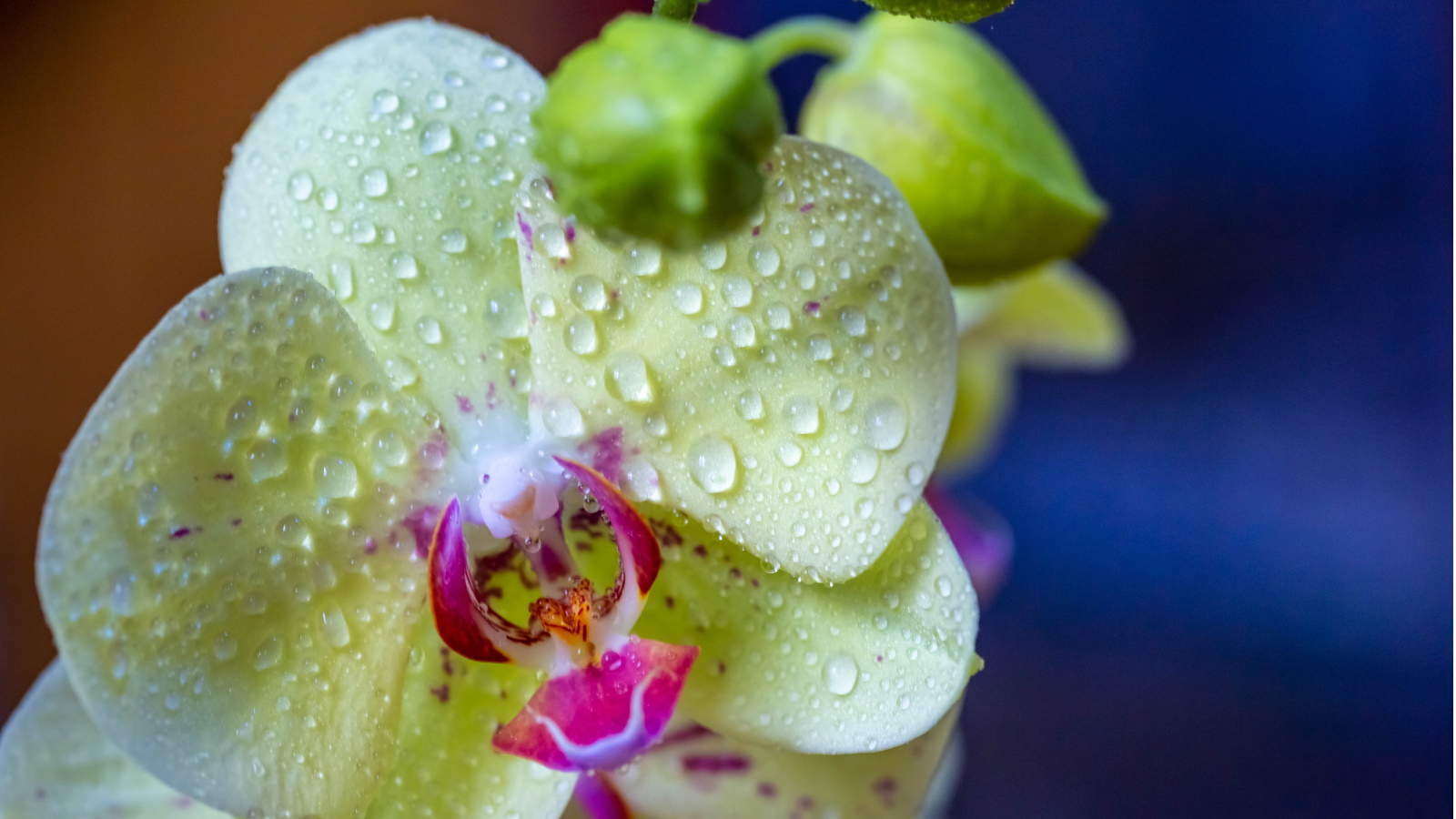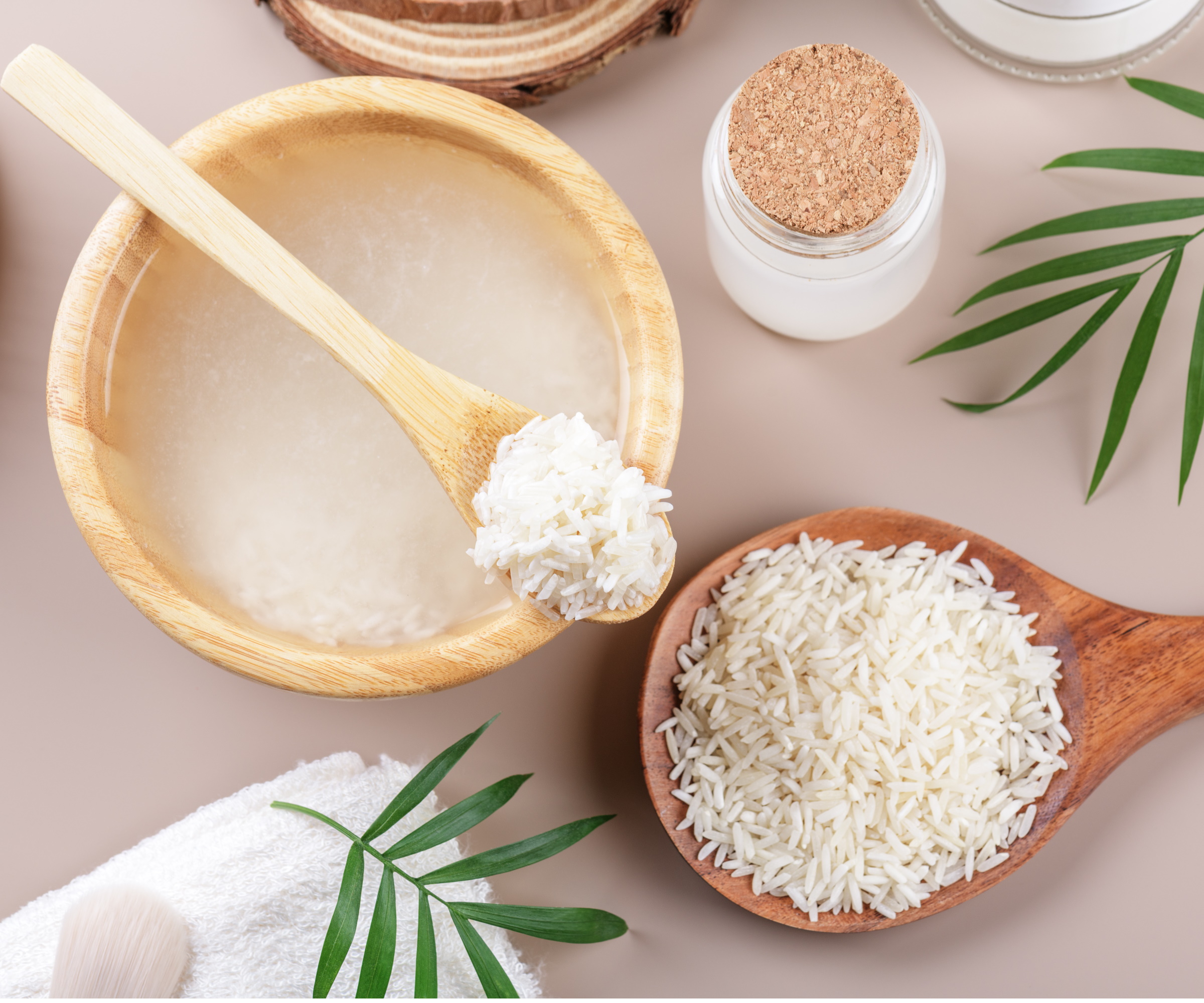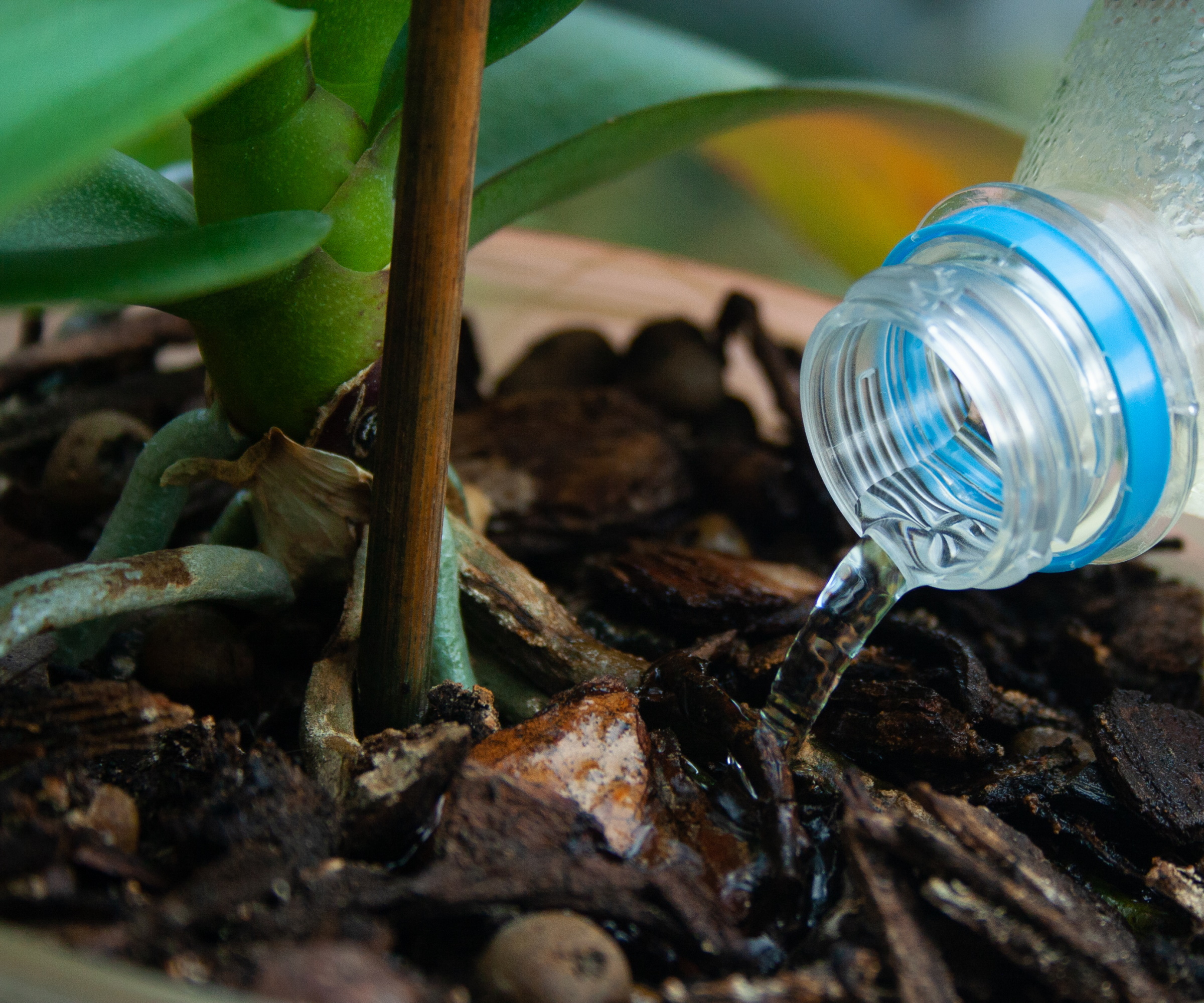Can I use rice water on orchids? Experts say this is the best hack to keep orchids blooming for longer
This starchy mixture infuses a whole host of nutrients into your orchid's potting mix


Growing orchids requires a lot of patience and consistency. You may already have tried the orchid coffee grounds hack to keep them happy, but have you heard of using rice water? This is a trend many have turned to when watering their orchids, providing a new source of nutrients for these beautiful indoor plants.
I have a few orchids in my houseplant collection and have battled my way through the challenges of keeping them alive. These exotic houseplants are known to be fussy and their tendency to quickly fade often intimidates many houseplant enthusiasts. That's why I'm always on the hunt for orchid growing hacks, and the latest one I stumbled upon might just be the trick to getting big blooms that last longer.
If you're wondering why you would use rice water on orchids, and if it is any good for their overall health, look no further. Here, I've compiled insights from experts who reveal everything you need to know about using rice water on orchids.
Is rice water good for orchids?

You might be surprised to hear a starchy stew of rice water can be quite beneficial to orchids. It's a great way to fertilize orchids and provide these indoor flowering plants with valuable nutrients.
'Rice water contains starches that can provide energy to orchids. The water also contains vitamin B, which will be released into the soil when you use it,' explains Julie Bawden-Davis, indoor plant expert at Healthy Houseplants.
'Rice water will also build up beneficial bacteria in the soil, leading to a healthier root system,' she adds.
Vitamin B in particular helps orchids establish a robust root system, which is why it is often found in plant fertilizers. The volume of vitamin B and starch in rice water provides the ultimate boost for orchid growth.
Design expertise in your inbox – from inspiring decorating ideas and beautiful celebrity homes to practical gardening advice and shopping round-ups.
As a result of using rice water on orchids, you might notice your orchid rebloom: 'Rice water can help orchid plants grow more shoots,' says Tammy Sons, horticulturist and CEO of TN Nurseries.
So, if you see your orchid stem turning yellow or need to bring an orchid back to life, it might be time to consider reaching for the rice in your kitchen cupboard.

Julie Bawden-Davis is a garden author and University of California Certified Master Gardener, who has written several gardening books, including Indoor Gardening The Organic Way. In addition to running HealthyHouseplants.com, she shares indoor gardening advice on her YouTube channel @HealthyHouseplants.

Tammy Sons is a horticulture plant expert, garden writer, and educator. Tammy is the CEO and founder of TN Nursery, a thriving online plant nursery based in Altamont, Tennessee. She is also a prolific writer, sharing her knowledge through articles on various gardening topics, including plant care, sustainable landscaping, and the latest trends in horticulture.
How to use rice water on orchids

Using rice water on orchids is very simple to do. The first thing you'll need to do is prepare your rice water - simple white rice from Walmart will do the trick.
'If you have any leftover water after cooking rice, you can use that once it cools off,' Julie says. 'You can also cook one cup of rice in four cups of water for 20 minutes and let it cool. Or, you can soak one cup of rice in three cups of water overnight,' she suggests.
There is no perfect amount of time to leave your rice soaking for, but you'll know the rice water is ready when it has a cloudy appearance. You can then strain the water to separate it from the rice, using this strainer from Amazon.
'Remember to dilute rice water before use. I would do one part water, one part rice water,' recommends Virginia Hayes, orchid expert at Westerlay Orchids. Not diluting your rice water may cause the top of your orchid potting mix to become hard, Tammy notes.
You can then use this concoction to water your orchids, but take care not to water your orchids too often. I like to use this soil moisture meter from Amazon to identify when my indoor plants need a top up.
'Using rice water on orchids is no replacement for proper fertilizing or watering,' warns Julie. 'You also don’t want to overdo adding rice water. I wouldn’t use rice water more than once every two months,' she adds.
Watering your orchids too often with rice water can have the same negative effect as using too many coffee grounds - the starch can create a paste that impacts drainage, leading to orchid root rot, among other problems. It's best not to rely on rice water and rather use it moderately and less frequently to simply provide a boost for your orchid.

Virginia Hayes' floral background started in 1999 importing and exporting floral products from offices worldwide. Holding over 24 years of experience, Virginia is widely respected in the floral industry for both her design skills and business knowledge. With interior plant design at her fingertips, Virginia’ eye for floral arrangements and keeping them thriving is always top priority.
FAQs
Does rice water attract pests on houseplants?
Rice water is beneficial for a number of houseplants, including orchids, thanks to its high nutrient value. However, you should take care not to use too much rice water or use it too often. A build up of starch in your plant's pot can cause a number of problems, including attracting common houseplant pests like fungus gnats. Likewise, it might cause an unpleasant smell or mold, and make your plant susceptible to disease.
There's no denying orchids make a statement in any room, so it's always useful when you find hacks like this that will keep them thriving. If you're looking for other ways to keep your orchids happy or want style them differently, try growing orchids in water or making an orchid terrarium.

Tenielle is a Gardens Content Editor at Homes & Gardens. She holds a qualification in MA Magazine Journalism and has over six years of journalistic experience. Before coming to Homes & Gardens, Tenielle was in the editorial department at the Royal Horticultural Society and worked on The Garden magazine. As our in-house houseplant expert, Tenielle writes on a range of solutions to houseplant problems, as well as other 'how to' guides, inspiring garden projects, and the latest gardening news. When she isn't writing, Tenielle can be found propagating her ever-growing collection of indoor plants, helping others overcome common houseplant pests and diseases, volunteering at a local gardening club, and attending gardening workshops, like a composting masterclass.